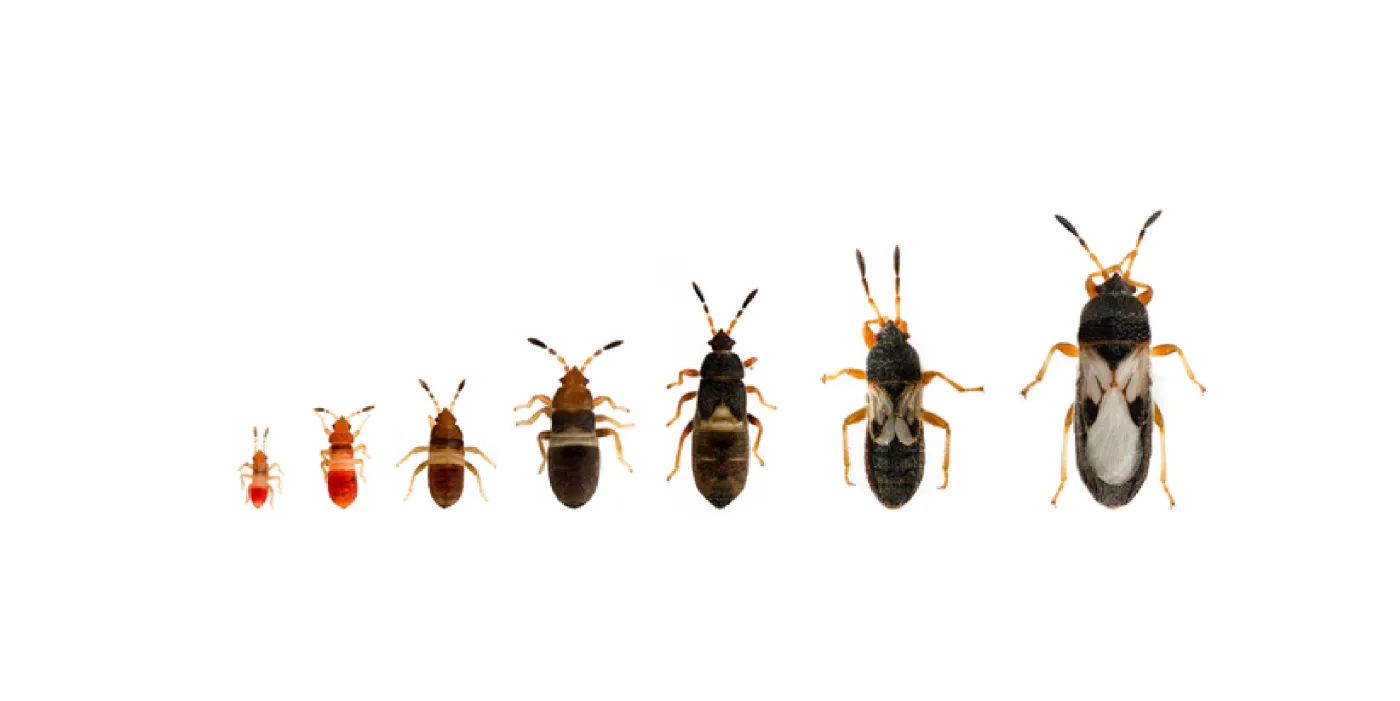Chinch bugs are small pests that can cause a large amount of damage to your lawn. Chinch bugs suck the moisture out of grass blades, then replace that moisture with a poison that kills the grass. Lawns that have been affected by chinch bugs appear to have drought-like symptoms, including yellow, brown, or dead grass. Chinch bugs are most prevalent from late spring to mid-fall and are typically found in St. Augustine lawns, although they are occasionally found in Zoysia yards as well.
What do Chinch Bugs do to a lawn?
They destroy by inserting their razor-sharp beaks into a blade of grass and then sucking out its natural fluids, causing the grass to dehydrate and die. Any time you find yellow patches of grass that turn brown and die—especially in sunny spots during hot weather—it's probably chinch bug damage. The damage caused by chinch bugs appears quickly in hot weather. With most of the damage in open, sunny areas, this may be mistaken for drought damage.
How to tell if you have a problem?
Chinch bugs give off an offensive odor when crushed. If your lawn has a noticeable odor when walked on, you could have a large infestation.
Spread the grass and check the soil surface for red nymphs or black adult chinch bugs. These bugs avoid the light and may hide in soil crevices. Chinch can also terrorize a neighborhood by going from lawn to lawn, attacking any lawn that isn’t on a lawn pest program.
How can you get rid of chinch bugs?
Managing this pest begins with proper lawn care. By keeping thatch to a minimum, for example, you reduce chinch bug numbers and make other control methods more effective. Thatch is the layer of dead plant material found between the green tops of the grass plant and the soil below. It provides a protective home for chinch bugs and chemically binds with many insecticides, making such controls less effective.
To control chinch bugs in Gainesville yourself, there are products you can buy at local home improvement stores. We recommend using the liquid products and buying a sprayer, though, as the granular products aren't nearly as effective. The granular lawn insect control products need the perfect amount of irrigation that won't dilute the product down beyond effectiveness, but also not under-irrigate where the granule doesn't dissolve.
If you're tired of fighting the battle for pest control in your Gainesville lawn, call our office at (352) 378-LAWN or fill out our online form so we can schedule a meeting to discuss how we can help!


